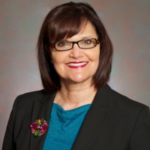Ultimately, the goal must be to create a healthcare environment that empowers physicians to make decisions based on the best interests of their patients, rather than being constrained by the economic realities of the system. By advocating for reforms that prioritize patient well-being and the responsible use of healthcare resources, physicians can help ensure the promise of biosimilars is realized and that all patients have access to the most affordable and effective treatments available.
Biological treatments represent enormous progress in the management of patients with rheumatic diseases. Nonetheless, the cost issues are significant. There is no bottomless pit of financial resources for healthcare in the context of competing societal needs, such as public safety, education, national defense, maintenance of infrastructure, environmental protection and other social goods. Unless a claim can be made and defended that healthcare expenditures should have priority status over all other social goods, choices must be made.
The availability of biosimilars should represent a partial strategy to improve access and to contain costs. That outcome is contingent on a level playing field and pricing transparency in what should be improved access to less costly products with comparable safety and efficacy profiles. This is a timely matter of distributive justice—the ethical choice of how to fairly allocate finite social resources.
 Karen Ferguson, MS, is a seasoned healthcare executive with more than 20 years of leadership experience, including her role as past practice administrator at Arthritis Northwest PLLC. Currently, she is the founder and president of Our Stories Rx, a 501(c)(4) organization dedicated to using interactive storytelling to advocate for policy improvements that enhance the health and well-being of vulnerable patient populations and their care teams.
Karen Ferguson, MS, is a seasoned healthcare executive with more than 20 years of leadership experience, including her role as past practice administrator at Arthritis Northwest PLLC. Currently, she is the founder and president of Our Stories Rx, a 501(c)(4) organization dedicated to using interactive storytelling to advocate for policy improvements that enhance the health and well-being of vulnerable patient populations and their care teams.
 Richard L. Allman, MD, MS, FACP, FACR, was the associate program director of the Internal Medicine Residency Program, Einstein Medical Center in Philadelphia from 2002–2017, and the interim chair of rheumatology at Einstein Medical Center from 2017–2020. He is an associate professor of medicine at Sidney Kimmel School of Medicine of Thomas Jefferson University, the clinic preceptor for internal medicine residents and the lead ethics consultant at Jefferson Einstein Medical Center.
Richard L. Allman, MD, MS, FACP, FACR, was the associate program director of the Internal Medicine Residency Program, Einstein Medical Center in Philadelphia from 2002–2017, and the interim chair of rheumatology at Einstein Medical Center from 2017–2020. He is an associate professor of medicine at Sidney Kimmel School of Medicine of Thomas Jefferson University, the clinic preceptor for internal medicine residents and the lead ethics consultant at Jefferson Einstein Medical Center.



